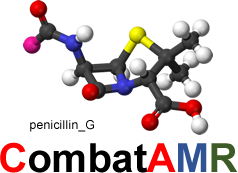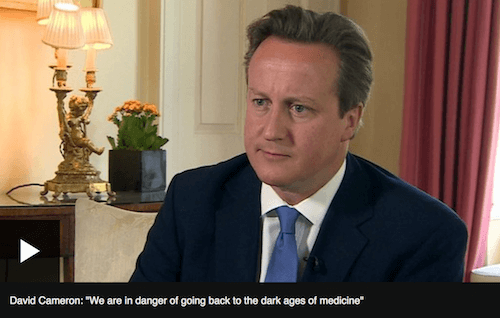>The Review on Antimicrobial Resistance (AMR)
https://amr-review.org/
Background: The Review on Antimicrobial Resistance has now completed its work. The content of its website is frozen as an archive of the Review’s work, and will not be updated further. The legacy of the Review will be maintained by its sponsor organisations, the Wellcome Trust and the UK Department of Health.
The Review was commissioned in July 2014 the then UK Prime Minister, David Cameron, who asked economist Jim O’Neill to analyse the global problem of rising drug resistance and propose concrete actions to tackle it internationally. The Review on AMR was jointly supported by the UK Government and Wellcome Trust, although operated with full independence from both. Established as a two-year, time-limited process, the Review engaged widely with international stakeholders to understand and propose solutions to the problem of drug-resistant infections from an economic and social perspective, and produced its final report and recommendations in the summer of 2016.
>Tackling Drug-Resistant Infections Globally: final report and recommendations
19 May 2016. https://amr-review.org/sites/default/files/160525_Final%20paper_with%20c...
This report outlines the Review’s final recommendations. It first discusses the mounting problem of resistance and why action is needed to combat it and then provides an overview of the solutions that the Review thinks should be implemented to curtail unnecessary use and increase the supply of new antimicrobials. It then looks at the role of public awareness campaigns, the need to improve sanitation and hygiene, reduce pollution from agriculture and the environment, improve global surveillance, introduce rapid diagnostics and vaccines, the need to increase the number of people in this area, and use of market entry rewards and an innovation fund to generate more drugs. Finally the paper examines how these solutions can be funded and looks at ways to build political consensus around them.
> Infection prevention, control and surveillance: Limiting the development and spread of drug-resistance
22 March 2016 https://amr-review.org/sites/default/files/160525_Final%20paper_with%20c...
This report examines the central role that infection prevention, control, and surveillance need to play in combating the rise of drug-resistant infections (DRI). This is based on the recognition that fundamental improvements in these areas are the key to sustainable gains in health outcomes, and yet are often given insufficient attention in our response to the global challenges of rising drug resistance. The paper looks first at the role of infection prevention in the community through improved water and sanitation infrastructure. It then looks at the need to prevent and control of infections in health and care settings. Finally, it looks at monitoring resistant infections through surveillance systems that will provide valuable information for doctors, patients as well global and national policymakers.
>Vaccines and alternative approaches: reducing our dependence on antimicrobials
11 February 2016. https://amr-review.org/sites/default/files/Vaccines%20and%20alternatives...
This report provides an overview of the markets and the pipelines for vaccines and other alternative approaches to tackling drug-resistant infections, by reducing the need for, and the use of antimicrobials. It makes three recommendations: Insert bullets
- Available vaccines should be more widely used; both in humans and animals, and that this may require financial support.
- There needs to be a renewed push for research into new vaccines and alternatives, through the Review recommended Global Innovation Fund and long-term sustained funding from philanthropic, public and private sources.
- It recommends strengthening the market for new vaccines and alternatives through interventions such as market entry rewards and Advance Market Commitments (AMCs)
>Safe, Secure and Controlled: Managing the Supply Chain of Antimicrobials
https://amr-review.org/sites/default/files/SafeSecureandControlledShortP...
20 November 2015. The report examines two specific aspects of the AMR problem and calls for improved global regulation and monitoring of both of these issues:
- online sale of antimicrobials without prescription,
- supply of poor-quality and falsified antimicrobial drugs.
A growing number of online pharmacies exploit gaps in the global regulatory mechanisms to offer antibiotics for sale around the world, often without prescription or clinical guidance – something that fuels dangerous self-medication habits and encourages the development of drug-resistant strains of infection by increasing unnecessary and excessive antimicrobials use. Meanwhile, poor quality and falsified antimicrobials fuel the development of resistance by delivering a sub-therapeutic dose of antimicrobials, providing enough exposure for the drug for microbes to begin developing resistance, without properly treating the infection.
> Rapid Diagnostics: Stopping unnecessary use of antibiotics
https://amr-review.org/sites/default/files/Paper-Rapid-Diagnostics-Stopp...
23 October 2015.
The report provides an overview of how diagnostics can play an important role in the fight against antimicrobial resistance, by reducing unnecessary use. It addresses how we can improve innovation as well as encourage the uptake of diagnostics. It suggests that Diagnostic Market Stimulus pots, to subsidise the purchase of diagnostics, would increase both uptake and innovation. It also proposes that diagnostic developers should be able to bid into a global innovation fund to support early stage research, and that there is a need more research into the long-term economic case for rapid diagnostic.
>Securing New Drugs for Future Generations – the Pipeline of Antibiotics
https://amr-review.org/sites/default/files/SECURING%20NEW%20DRUGS%20FOR%...
14 May 2015.
The paper provides a high-level assessment of the development pipeline for new antibiotics, and sets out the Review’s initial proposals for the action needed at a global level to kick-start antibiotic drug discovery efforts. This includes proposals for new ways of channelling new money into early-stage research relevant to the tackling AMR; and for major global interventions to ensure that drug developers can be sure of a predictable and viable market for new antibiotics which can successfully tackle society’s most acute unmet needs.
>Tackling a global health crisis: Initial steps
https://amr-review.org/sites/default/files/Report-52.15.pdf
5th February 2015.
This report sets out some of the Review’s early thinking on key areas where action is required to tackle AMR – including through support for early-stage R&D, and development of the specialist workforce working in fields relevant to AMR. Survey by the Review of actors in the development of antibiotics and a summary of findings.
>Antimicrobial Resistance: Tackling a Crisis for the Future Health and Wealth of Nations
https://amr-review.org/sites/default/files/AMR%20Review%20Paper%20-%20Ta...
11 December 2014.
This, the first report published by the Review, this set out the results of economic modelling work which sought to quantify the future economic impact of rising drug resistance, making the case for AMR to be treated as an issue that threatens economic development and prosperity. Studies on the economic costs of antimicrobial resistance were commissioned from RAND Europe and KPMG.
>Antibiotic resistance: Prime Minister Cameron commissions a review on AMR
and warns of medical 'dark ages' 2 July 2014 https://www.bbc.co.uk/news/health-28098838
"If we fail to act, we are looking at an almost
unthinkable scenario where antibiotics
no longer work and we are cast back
into the dark ages of medicine"
David Cameron, UK Prime Minister. (2014)
The wide-ranging REVIEW was commissioned in July 2014 by the then UK Prime Minister, David Cameron, who asked economist Jim O’Neill to analyse the global problem of rising drug resistance and propose concrete actions to tackle it internationally. The Review on AMR was jointly supported by the UK Government and Wellcome Trust, although operated with full independence from both. Established as a two-year, time-limited process, the Review engaged widely with international stakeholders to understand and propose solutions to the problem of drug-resistant infections from an economic and social perspective, and produced its final report and recommendations in the summer of 2016.
The Review on Antimicrobial Resistance has now completed its work. The content of this website is frozen as an archive of the Review’s work, and will not be updated further. The legacy of the Review will be maintained by its sponsor organisations, the Wellcome Trust and the UK Department of Health. To view video: https://www.bbc.co.uk/news/health-28098838

